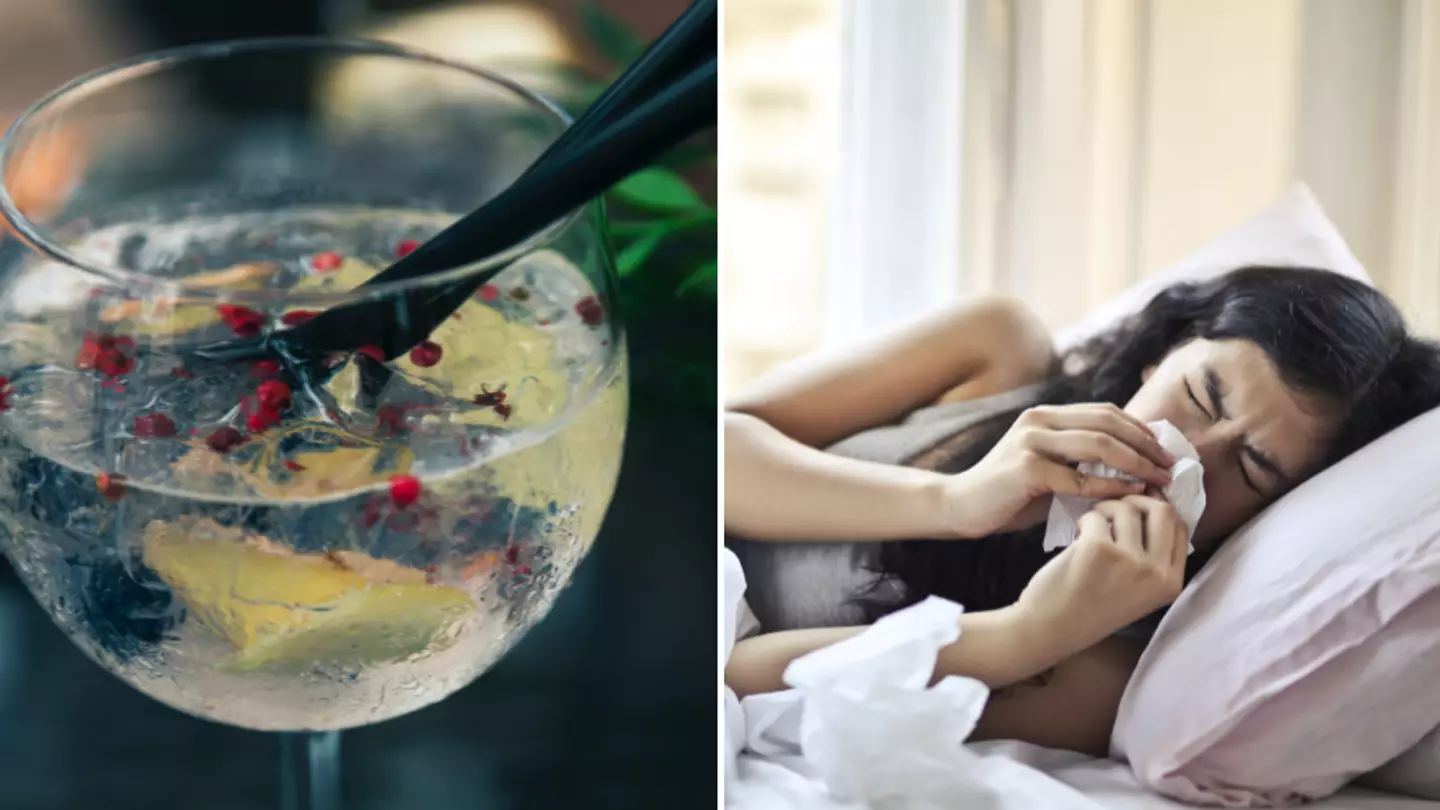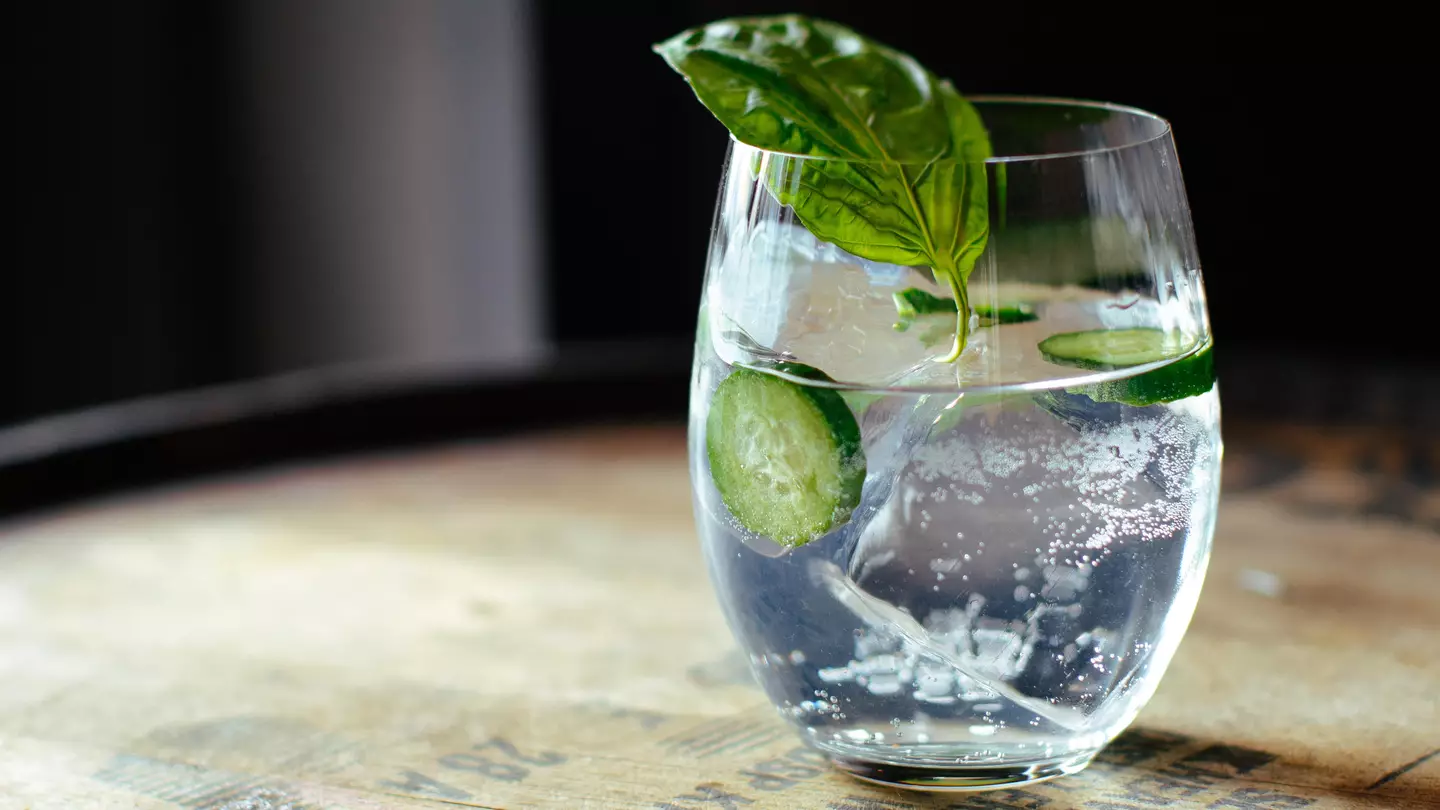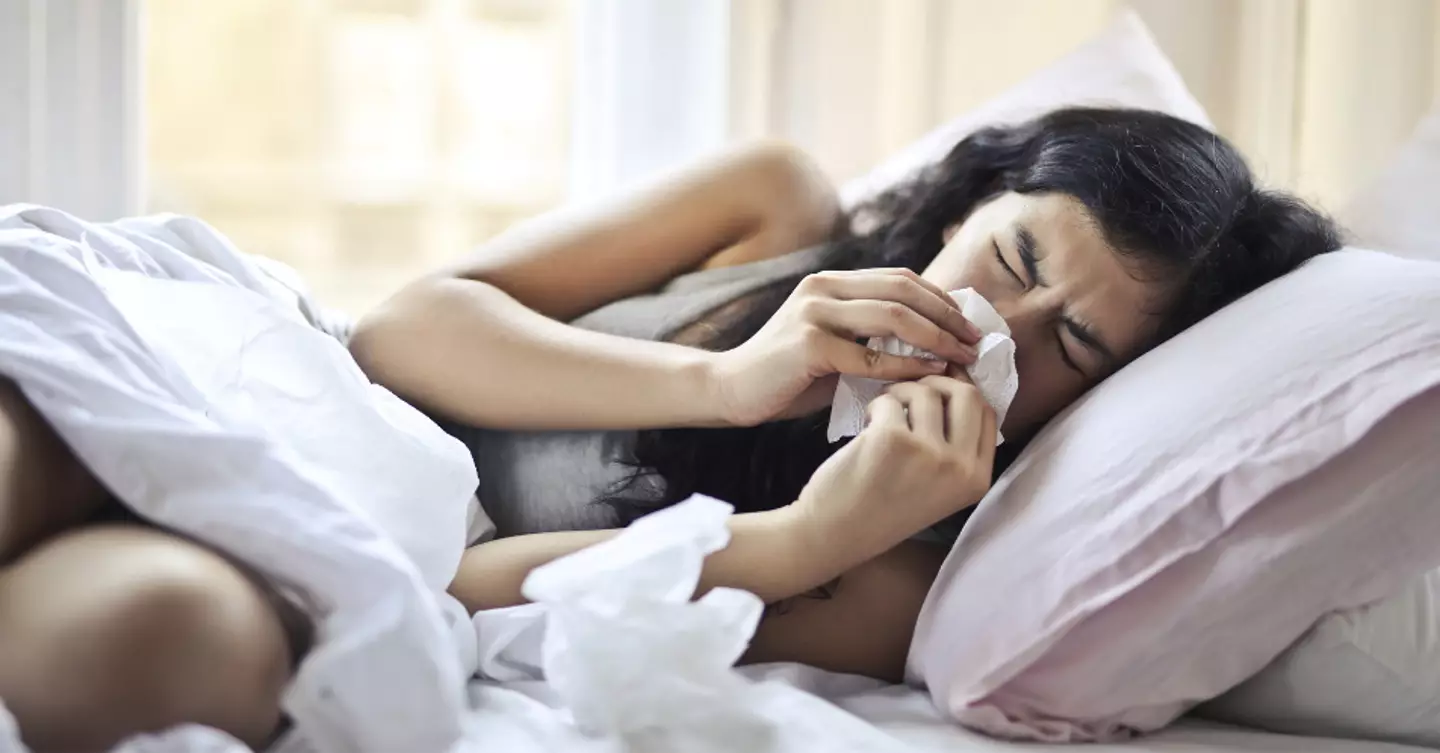
You may be aware of the devastating fact that alcohol tends to make hay fever symptoms worse. I know, as if a constant runny nose and itchy eyes weren't bad enough on their own.
Thankfully though, you needn't shelve your dreams of enjoying a crisp G&T in the summer sun, as some tipples are better than others in terms of aggravating your hay fever symptoms - and it's all because of their ingredients.
While some alcohols tend to have a disastrous effect on those suffering from hay fever, alcohols with low sulfites and histamine levels can still be enjoyed without making yourself feel worse.

Sticking to clear spirits like gin and vodka is your best bet if you're a hay fever sufferer - and it's advisable to steer clear of wine, cider and beer (sigh).
Advert
This isn't just true of hay fever sufferers, but people plagued by other allergies and asthma too.
Asthma UK writes: "For some people, symptoms are triggered when they drink any kind of alcohol; others tell us that it’s only certain alcoholic drinks that cause a problem.
"Alcoholic drinks most likely to trigger your asthma symptoms are wine (red, white, rose and sparkling), beer, and cider. This is because they often contain high levels of sulphites or histamine."
As well as reconsidering the booze you're drinking, you can reach for a simple kitchen cupboard staple to help ease your hay fever symptoms.

According to one expert, eating a spoon of honey every day could relieve your sniffly symptoms and itchy eyes.
Advert
Lead Pharmacist and health adviser, Parvinder Sagoo, for SimplyMedsOnline explains: "The bee pollen in honey desensitises your body to other pollen, so increasing your daily honey intake may help a person become less sensitive to pollen. As a result you may experience fewer seasonal allergy symptoms."
He further explained: "Prevention is better than cure, and antihistamines are your best bet when it comes to preventing symptoms before they occur, as most often once pollen has made its way into your nasal passage or mouth it's difficult to prevent symptoms such as a runny nose, sneezing or itchy eyes, so it's best to take treatment an hour or so before you leave the house."
However, if your symptoms are acute or persistent it is always advisable to seek professional advice from your pharmacist or doctor.
There are a wide range of medications and nasal sprays widely available over the counter to try if you don't fancy a trip to the doctors.
Featured Image Credit: PexelsTopics: Food and Drink, Health
